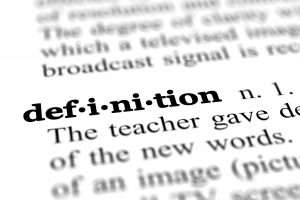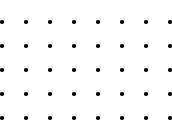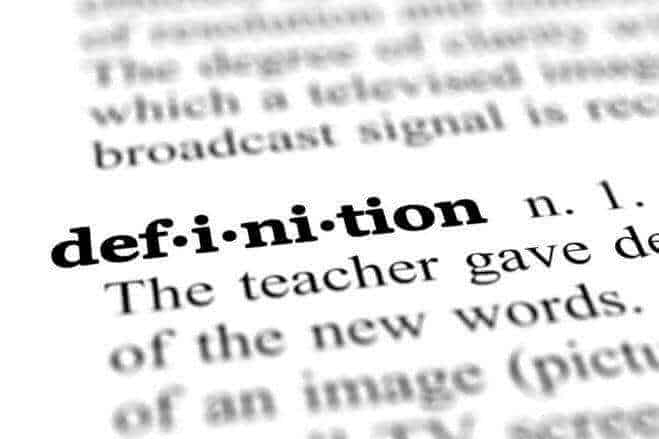
The Importance of Defining Who You Are
This article was inspired by a comment that was left about three years ago by Vernon, dealing with the definition of a nomad, and how people may view it differently (read it at the bottom of the article). I have to admit that I used to think that definitions and adjectives were not important and even shallow. We are who we are, so why should we bother putting a name on it? I gradually learned to understand that this is not the case, especially after reading comments like Vernon’s. Exact definitions are not easy as well. If you try to define the word nomad, you may find different criteria as to who qualifies as a nomad and who doesn’t. So instead of exact criteria, it’s better to stick to the essence. In our case, a nomad is someone who constantly moves around without an end location they call home. So why are definitions important?
Peace of mind and a meaning
If you’re not following the norm, and can’t put a name on who you are, life can get confusing. If you’re like 95% of the people, who work 9-5, have a family, kids and a steady living situation, you don’t really need a definition. That’s the regular template and your life flows mostly like everyone else’s. But as a nomad, defining yourself gives meaning to what you’re doing. You are no longer lost or “somewhere else”, but exactly where you want to be, taking a conscious decision to live life in a specific way that works for you best. You get your peace of mind, in our case, by knowing you are on a path that goes nowhere. Who you are, or your lifestyle is a religion that you customize by yourself and one that keeps on changing. In my opinion, this is much more fun than copying and pasting one of the most popular religions.
People can understand what you do
If you know who you are, and the definition is clear, your chaos becomes predictable and even socially acceptable. You become legit. Once you know who you are and accept who you are, people see a structure and pattern and are more likely to accept it. You want the people around you to accept what you do instead of giving up on them or have them give up on you.
Story
A definition creates a story, and stories are good. The story tells who you are, what you do, the reasons for you to be doing that, and what happened since you started. It makes you interesting and it makes you valuable – meaning you can teach people. This will improve your social life because people are drawn to interesting people. And it can also help your career possibilities. A lot of the publicity for my projects came from the nomadic story. It gives a push to everything you do, and grows your personal brand.
Stability and structure
It is best to build your routines and structure your life based on who you are. You can only decide about the ideal frequency of changing locations and your unique style of travel and work after you make it clear to yourself that you are a nomad. Once you know who you are, other parameters – like the right job, places you want to go to and length of stay, just fall into place. If you have the right structure and rules to your journey, it will make you effective and happier. You get to build your activities, routines and values based on something that is defined, instead of chaos.
You can find a tribe
If you don’t know who you are, it is tougher to find your group or tribe. Even worse, you may pick the wrong one. Humans are social animals who come together and form groups based on values and shared interests. If you don’t define your own values and interests, chances are you will spend more time alone (or with the wrong people). Defining who you are, helps you figure out the relevant social groups for you to focus on. For example, I’m looking for location free entrepreneurs and digital nomads, while traveling. Once you decide on your relevant groups of interest, it will greatly increase your chance of making new connections.
As we’ve seen, there are strong benefits in having a clear definition of who you are. However, before we sign off, it is also good to get back to on of our previous posts, about Yom Kippur. In that article, we discussed definitions and the need to change the way you define yourself from time to time. Life is too short to only be who you are now. Be proud of your current lifestyle, teach it, explore it, and let go of it, once it’s clear the time is right. So, who are you? (No, really who are you, the one person downloading this thing?).
And here is Vernon’s comment:
“Just found your site. I am not young. I have travelled all my life as a traveller and as a merchant seaman. I have lived in various countries. Now retired and still “somewhere else”. Some people I have known say “You always change your mind where you will live”. This has bothered me at times. But now after reading your section on about what a Nomad is, it confirms to me, that is who I am, and that is what I will always be. If others don’t understand that, then, they are not Nomads. I think there are Nomads and there are travellers. They differ.
Now I am in Bangkok where I “live”. In a couple of months, I am off to the South Sinai ( again). Love what your site is about. I’ll be back!”



This podcast is inspiring and motivating me – thank you! From Brooklyn NY next destination Boston !
I often do less visits than a tourist. I go somewhere, settle for weeks or months and live. I do not necessarily visit. I pick the most interesting sightseeings according to my taste. I live and work like a local. If I like the place, I stay longer. If I get bored, I quit.
Yep, nomadism is a state of mind; traveling is a way of holidaying.